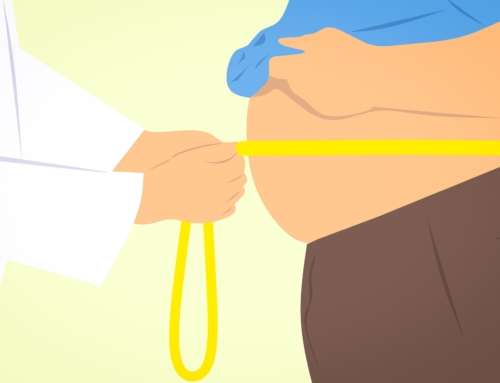I recently had an adult patient in my office who wondered if they had ADD/ADHD. While guidelines are clearer for children they cross over into a fuzzier category for adults especially for ADHD. Adults with ADHD manifest their symptoms is no many other ways rather than just not being able to sit still. So much so that your couch potato partner might just have ADHD!
ADHD is really mislabeled as it is not really an attention deficit but more of difficulty directing the attention and having the motivation to do so!
There are three main types of adult ADHD:
- Inattentive type: Can’t pay attention, trouble being organized and ignoring distractions. No trouble sitting still.
- Impulsivity/hyperactive: easier to focus but may have trouble sitting still or thinking through the consequences before acting. Think: can’t stop, can’t resist or can’t wait.
- Combined
Symptoms of adult ADHD: If any of these sound a bit too familiar then you or someone you know might just have ADHD.
- Blurts out blunt remarks without thinking first
- Difficulty waiting their turn
- Rush through tasks frequently making errors
- Yield to temptations easily: food, shopping, sex
- Workaholic
- Incessantly talking on phone or perusing social medica
- Frequently doodling, humming, whistling
- Loses interested in not so stimulating tasks and unable to finish: paying bills, laundry, conversations, t-do lists
- Conversations get side-tracked easily
- Missing parts of conversations to the point your partner tells you that they had told you this before (goes along with poor sustained attention)
- Forgetfulness
- You are being told that another persons or family issues/failures are your fault (the person pointing the finger might just have ADD/ADHD which is making them unable to finish tasks leaving the relationship vulnerable)
This is not an all inclusive list as there are many, many more ADHD can present.
READ ON as I explore how you can start to understand if this is just a sign of a too busy life or truly ADHD, three types of adult ADHD and some at home screening tests you can do to see if you might have it!
I have to give complete credit for this email to a fascinating book by Gina Pera: Is it you, me or adult A.D.D. This book really does a deep dive into adult ADD/ADHD that spells out the many different presentations and how they can affect your relationships! I highly recommend reading more about this and consulting a professional who is familiar with adult ADD/ADHD to discuss strategies and treatment options!
There are three main characteristics of ADHD:
- Inattention
- Impulsivity
- Hyperactivity
These can manifest differently depending on the person and the circumstance.
For example, if you have ADHD and are driving it might manifest as the following:
- Inattention: missing signs and hazard warnings
- Impulsivity: weaving in and out of traffic, challenging a car that just pulled in front of you and having to speed up to pass them
- Hyperactive: constantly changing the music, obsessive texting, changing speeds (challenging other drivers can fall under this category, too)
ADHD and money:
- Inattention: losing track of money, checks, bills
- Impulsivity: overloading your credit cards, careless spending, impulse buying
- Hyperactivity: not spending any time planning and taking too much time just spending. Think of constantly looking on the web and when things pop up you are buying it
See how all over the place it can be! These manifest in the work place, in relationships not only in daily interactions but in peoples sex lives as well.
You might be reading this and think oh wow I’ve done that! Just because you have some of these symptoms doesn’t mean you have true ADHD. I have had seasons of life that my life was so busy that I was so distracted with figuring out kids schedules, dinner etc that conversations just slipped by.
First there are times in our life that we all might have experience some of these:
When life is so busy that you are so distracted trying to figure out the kids schedules, dinner etc.
When work is so busy that you have many different projects that are all coming due at once
When there are nutritional imbalances/medical issues making it harder to think, follow thru, etc
I can identify with all of these at various times in my life but having seasons of my life when these occurred does not mean I have ADHD. Gina Pera puts it so well “all ADHD symptoms represent normal human behaviors – its’ the degree to which the behaviors are present”.
Tests you can do right now to see if you have ADHD:
Here are a few tests you can do right now that may give you the tip off that you or someone you love may have ADHD. Keep in mind that by the time you are an adult you may have put in many coping mechanisms to offset these so when you are answering the questions be really truthful with yourself. If your results on the WHO test indicates you could have ADHD according to studies you truly have a 93% chance of having it. Another interesting test that will give you a score is the ADD organization test. This is a web based test that will auto-score you after a series of questions and is fascinating! Keep in mind that if your number is below the threshold of ADHD but you still have a strongly positive number you can still have ADHD! Share these tests with the people you love and see how they score. Keep in mind these are designed for adults only.
The actual guidelines for diagnosis are the presence of 6 or more symptoms that manifest to a degree of dysfunction and are maladaptive:
- Easily distracted by extraneous stimuli
- Makes decision impulsively
- Difficulty stopping activities or behaviors
- Starts a project or task without reading/listening to directions carefully
- Shows poor follow through on promises or commitments made to others
- Trouble doing things in their proper order
- More likely to drive a vehicle much faster than others
- Difficulty sustaining attention in tasks or leisure
- Difficulty organizing tasks/activities
Other parameters include
- Some symptoms present prior to age 16
- Some impairment in 2 or more areas: work, education activities, home life, social , community activities
- Clear evidence of impairment:
- Do not occur exclusively during the course of another disorder (bipolar, schizophrenia, etc)
Just because you have ADHD doesn’t mean there is something majorly wrong with you!! Your brain is just wired a little differently and there are strategies that can really help not only you but your family members. Supplements can help in mild cases and medications can be life-changing.
To your health,
Laura









